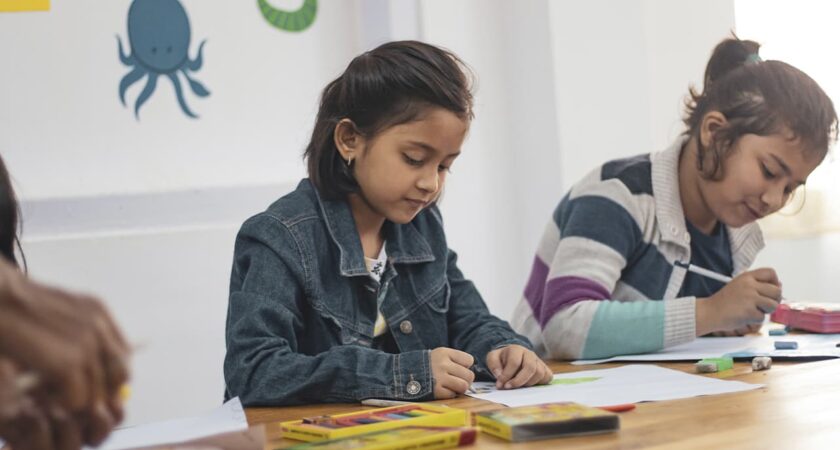In Israel, there is a so-called preschool education that applies to all children from the age of two or three. Many two-year-olds, and almost all three- and four-year-olds, attend preschools funded by local authorities or voluntary women’s organizations.
In early 1999, the Knesset passed a law on free kindergartens for all children starting at age three. Kindergarten is compulsory for five- and six-year-olds. At this age, children are taught the basics of reading and arithmetic, cognitive and creative abilities, and how to communicate.
There are several educational units for preschool children in Israel:
- “Maon Yom” – accepts children from 3 months to five years. It is open from 7 am to 4 pm. This type of institution is under the control of the Ministries of Labor and Education, but is owned by various public non-profit organizations. Their goal is to support working women. Fees are set for the whole year and are determined by the family’s income.
- “Mishpahtonim (family daycare centers) – accept children from the age of 1.5 years and are under the control of the Ministry of Labor. They are open from 7 a.m. to 4 p.m. or until 1 p.m. (cheaper). The peculiarity is that there can be no more than 5 children in the kindergarten at a time. The fees are lower than in Maon Yom. Most nurseries are located in private homes.
- “Pauton” – designed for the youngest children (up to 3 years old) and function like “Maon Yom” or “Mishpachton” groups. The facility is usually run by a private individual who determines which children will be admitted and on what basis. Normal opening hours are from 8 a.m. to 12 or 1 p.m.
- “Beit Talmid is a preparatory after-school program that accepts children from pre-kindergarten through third grade, where children have lunch and do their homework in the afternoon.
- Private kindergartens. The amount of payment is determined by the inspector according to the quality of the kindergarten. They differ in the quality of equipment and the qualifications of teachers. Private kindergartens with more than 10 children must have a license. Private kindergartens with a license are usually short of places.
- “Kdam Hova” is a pre-preparatory group for children aged 4 years. In developing cities, this group covers children as young as 3 years old. In these kindergartens, new immigrants are given discounts of up to 90% during the first 4 years of their stay in the country. This type of kindergarten operates in areas under the control of municipalities, where registration takes place.
- “Gan Hova” is a compulsory preparatory group of kindergarten. It is intended for five-year-old children. The maximum number of children in a group is up to 35. The concept of kindergarten involves intellectual, physical and emotional preparation for school.
School education system. Imagine a school where no one cheats. A classroom that doesn’t get up when the teacher comes in. A university where a professor gives one lecture three times and students choose a convenient time to attend. A final exam that can be retaken countless times. No, this is not a fairy tale, this is the Israeli school system.
Universal and compulsory schooling covers all children between the ages of 6 and 16. Young people between the ages of 16 and 18 continue their education depending on their desire and capabilities. The main task of the country’s education system is to enable children living in a pluralistic system to become responsible citizens of a democratic society. In Jewish schools, Arabic is taught as a second language, and Hebrew is a second language in Arab schools.
